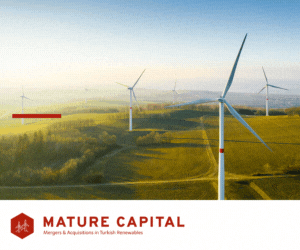Foundations
Joint Open letter: Delivering a Net Zero Industry Act that is strategic, targeted and impactful

The world is entering a new era of cleantech competition. According to theIEA, well-designed industrial strategy is key. China, the USA and Japan are all moving quickly to ensure they capture their share of a cleantech market likely to reach $650 billion by 2030, delivering long-term competitiveness for their economies, green jobs for their citizens, support for their climate goals, and energy security amidst unstable geopolitics.
The European Union has been the world’s first-mover on climate change. Now, it needs to move faster and more assertively if it is to stay in the cleantech race. The proposed Net-Zero Industry Act (NZIA) is an initial step that could deliver the stable, predictable regulatory environment needed to attract investors and build up European cleantech manufacturing. Listening to the current political debate in Brussels, however, there is clearly a risk that Europe will miss this opportunity to develop the industries of the 21st century by overly focusing on those of the 20th.
The original scope of the Act, with eight strategic cleantech sectors, arose from one insight: the economies of the future will be ones powered by, and dependent on, cleantech, production of which is largely concentrated trated in locations which face significant geopolitical risk. Therefore, increasing cleantech manufacturing capacity at home creates a massive economic opportunity while bolstering Europe’s energy security.
Widening the scope of the NZIA too much undermines this strategic focus. By employing the EU taxonomy definition (from Art. 10.1) of net-zero industries, and including provisions which cover the whole economy, the NZIA would lose sight of what should remain its focus: building a new EU cleantech manufacturing base that can serve rapidly growing domestic and global markets. A strategic industrial policy requires focus – if everything is a priority, nothing is.
Moreover, the broadening of scope in the current draft European Parliament report, when coupled with the proposal that ETS revenues be used to support the goals of the NZIA, risks that some of these revenues become available to companies who already receive free allocation under the ETS. This would put innovators outside of the EU ETS (in other words, those not emitting CO2 or equivalents) at a significant disadvantage. Instead of securing funding for cleantech businesses, this introduces uncertainty and risks reproducing the issues of the Innovation Fund first calls, whereby most money went to big corporations and the cleantech innovators in Europe were left out of the grants awardee list, for reasons which had to do with their early innovators status (i.e., not meeting financial maturity criteria). Finally, there is a legal contradiction in using ETS revenues to possibly support fossil fuel investments, which could be the case with a whole-economy scope approach, as well raising the risk of WTO-level challenges for CBAM if the same industries are subsidised twice – first through free allocation, and second through revenues which should have been ring-fenced for cleantech.
The proposal to utilise member state ETS revenues to invest in cleantech projects is warmly welcomed. Yet, this good idea can become counterproductive if the NZIA scope becomes too broad. A wide definition of net-zero technologies, provisions for EU funding for carbon storage and a vague concept of net-zero industry valleys could all serve, de facto, to channel public money meant for decarbonisation toward polluting incumbents and away from green innovators.
An NZIA that does not prioritise strategic cleantech sectors because of an overly widened scope leaves the EU vulnerable to geopolitical shocks, misses the opportunity to create thousands of quality jobs and endangers Europe’s competitiveness in the growth markets of the future.

-

 Events5 years ago
Events5 years agoCanada and Turkey women working in the renewable energy sector in met
-

 Manufacturers of wind turbines5 years ago
Manufacturers of wind turbines5 years agoGE’s Haliade-X 12 MW prototype to be installed in Rotterdam
-

 Operations and Maintenance6 years ago
Operations and Maintenance6 years agoGENBA is on the rise; another milestone passed by in global existence
-

 Genel8 years ago
Genel8 years agoEWT launches the DW61, It’s most efficient and high energy producing wind turbine
-

 Genel9 years ago
Genel9 years agoInternet of things will empower the wind energy power plants
-

 Turbine Manufacturing6 years ago
Turbine Manufacturing6 years agoİğrek Makina focused on developing and producing Machine Tools and Wind Energy Turbines
-

 Energy management systems5 years ago
Energy management systems5 years agoDemand/Supply – Renewable energy with guarantees of origin (GO)
-

 Events5 years ago
Events5 years agoKey Players from 10 Nations will Show Their Strong Positions at APWEE
-

 Manufacturers of wind turbines5 years ago
Manufacturers of wind turbines5 years agoThe Nordex Group receives first order for Delta4000 turbines from the USA
-

 Manufacturers of wind turbines4 years ago
Manufacturers of wind turbines4 years agoENERCON installs E-160 EP5 prototype
-

 Genel8 years ago
Genel8 years agoZorlu energy envisages a bold new future based on renewables
-

 Manufacturers of wind turbines5 years ago
Manufacturers of wind turbines5 years agoENERCON and Lagerwey together develop two new WEC types















